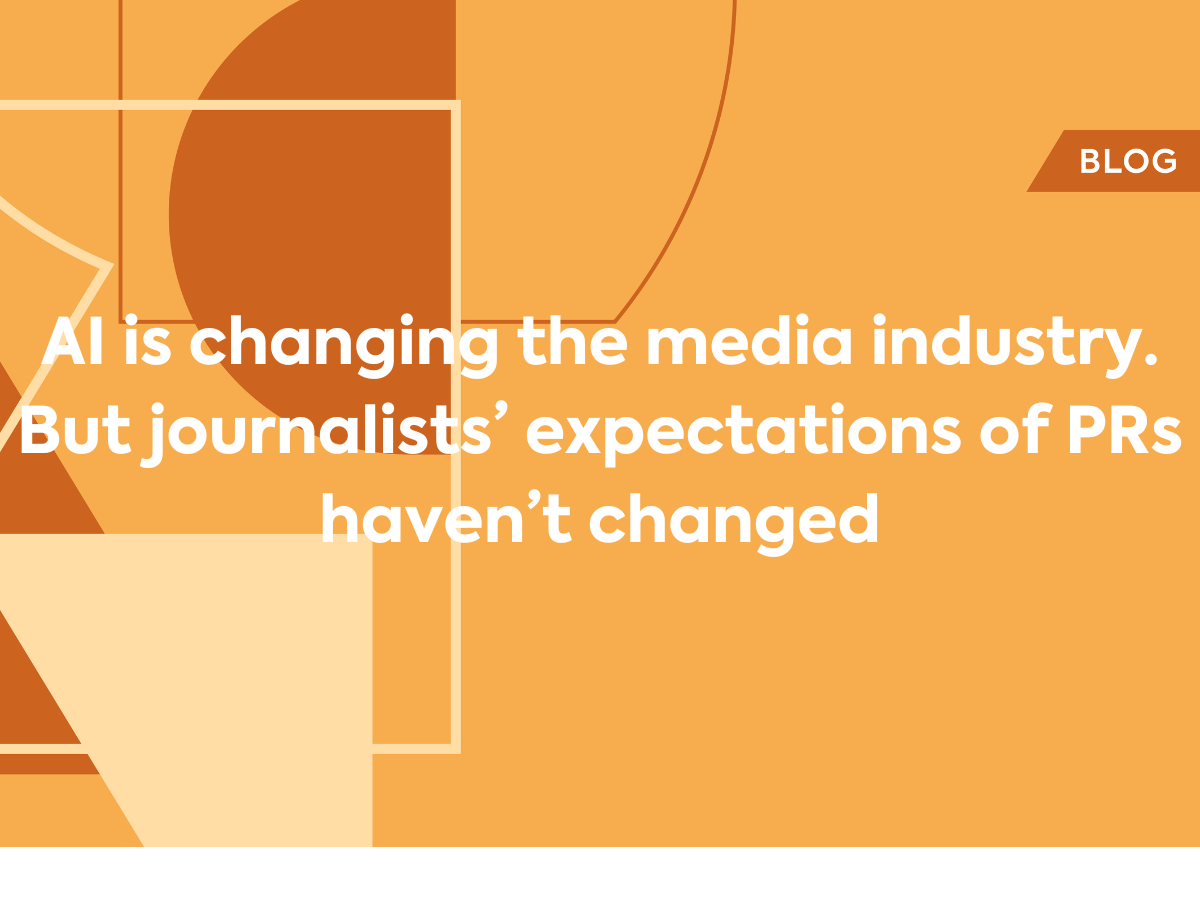
AI is changing the media industry. But journalists’ expectations of PRs haven’t changed
From headline generation to article summaries, generative AI (GenAI) is being tested and adopted by major publishers, promising speed and efficiency.
In fact, the BBC recently announced that it would publicly test two pilot initiatives. GenAI would be used to help BBC journalists create new ‘At a glance’ summaries of longer news articles, and ‘Style Assist’ would support new journalists in matching the BBC’s house style.
Some news publications are going even further with publisher Reach plc rolling out AI tools that allow journalists to quickly rewrite stories already published on one of its sites across its network.
Despite a clear push by publishers to adopt AI, there remains a disconnect between leadership and journalists themselves. Cision’s annual State of the Media report highlighted that less than half of journalists say they are using GenAI tools in their work.
“When training journalists you’re always told never to take anything by face value and to always follow up,” said Forbes contributor and former management editor at the Independent and business news editor at the Independent on Sunday, Roger Trapp when speaking to Code Red.
“I think this is even more the case now [thanks to AI] because it would be very easy to be caught out.”
Much is discussed about how AI is changing the skill sets needed in the workplace, and cutting down the time spent on routine tasks, but Roger questions whether it will come at the cost of learning valuable skills.
“The news desk would send out a photographer to various things, and they’d come back with all sorts of facts,” said Roger. “And then as a trainee reporter, you had to convert it into a story based on what they had given you.
“People say that AI takes away the drudgery, but doing those tasks helps you earn your stripes. The task I just mentioned encourages you to check facts and names, and you always need those skills as a journalist to always question things.”
You have to know the contacts more than ever
The “question everything” mantra that Roger lives by as a journalist is so important, especially when determining a suitable spokesperson for an article. Journalists must increasingly verify if incoming content is AI-generated.
In a recent Code Red webinar on AI in PR and journalism, founder of Machine and former technology and science editor at The Sun and Metro, Jasper Hamill, discussed how he had seen an increase in the number of AI-generated content he receives on a daily basis.
“Whenever I put out a request for a quote or comment, I often get comments written by AI, said Jasper.
Jasper noted how every AI-generated comment he receives is bland. “You never get a really exciting comment,” said Jasper. AI comments are] washed by the rules of OpenAI, or whatever other models are being used, and then it’s been washed by the brand, and it just comes out pallid and rather dull.”
The authenticity of spokespeople has also come under scrutiny with a recent Press Gazette investigation by Rob Waugh, revealing that one of the UK’s most widely quoted psychologists was, in fact an AI creation, complete with its own fake LinkedIn account.
“I am wary when I receive comment [without ever interacting with the person], and if it was core to the piece, I would be very nervous about that,” said Forbes contributor Roger Trapp. “I’m probably more inclined now to see someone face to face before using a written quote, particularly if people are creating fake LinkedIn accounts.”
“The power of having a face-to-face conversation, especially with someone you’re meeting for the first time, is huge. They [remote calls] always feel a bit stilted, and you’ve got to cut straight to the chase.
“Whereas when you’re meeting someone, you have the small talk and the niceties before you settle down. You’re getting the measure of the person, which is a key part of being a journalist.”
Trust is still the name of the game for PR
With AI-generated content on the rise, trusted relationships between journalists and PRs are ever more important
“The relationship between PR and journalism has been built on a certain level of trust,” said Roger. “You rely on the people you’re dealing with being trustworthy.” The use of AI-generated content, especially by PRs, means that journalists won’t simply trust the comments or pitches they receive.
Ultimately, AI is changing the journalism industry, but so did the internet, social media and other technologies. What didn’t change was the core skills journalists use to find stories and build trustworthy contacts.
In the age of GenAI, the trust that journalists have in PRs and spokespeople will define a company’s media success. The comments and pitches that will catch the attention of journalists won’t be the AI-generated ones, but those crafted with genuine human insight.
For further insights on how AI is impacting the journalism industry, watch our latest webinar here, and if you’d like to know more about how we could help you book a meeting to speak with us here.